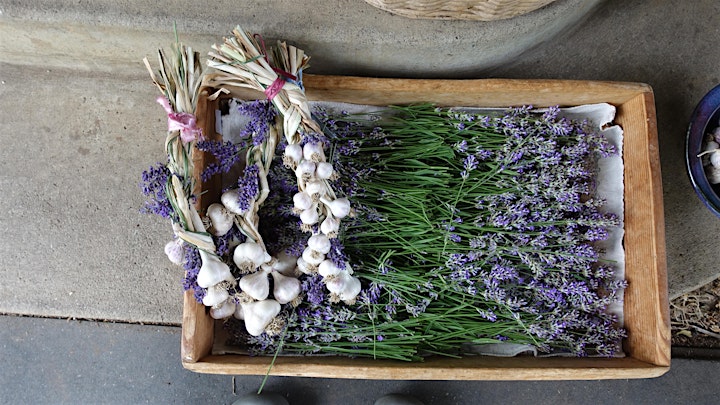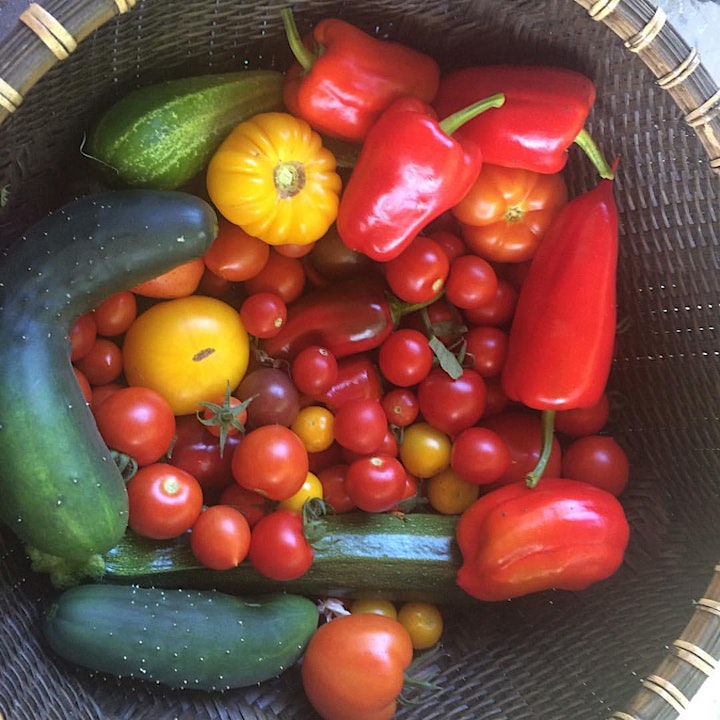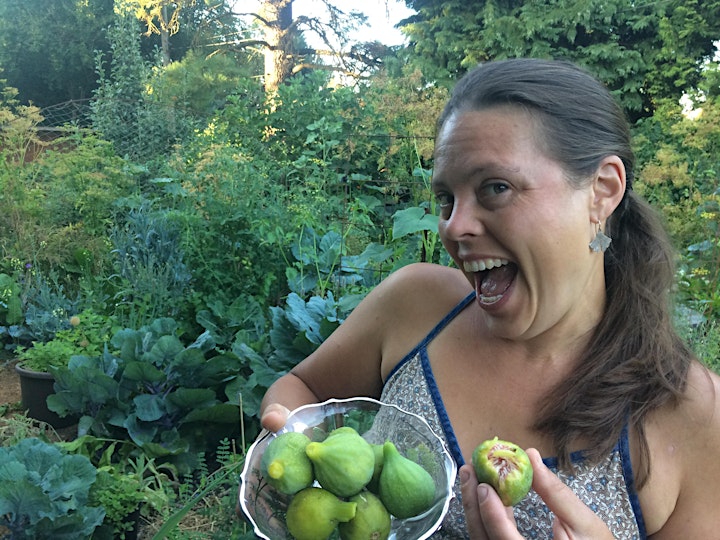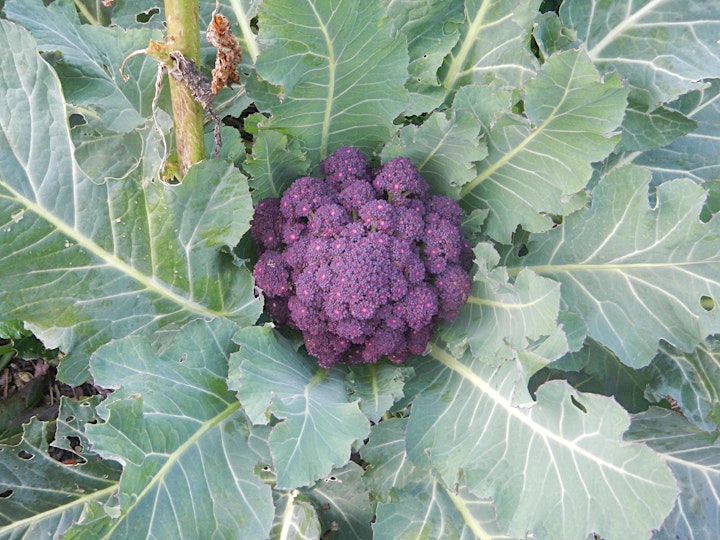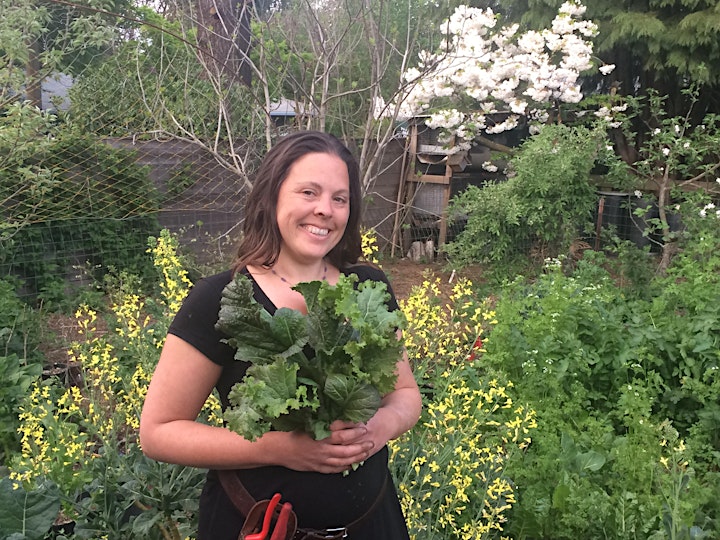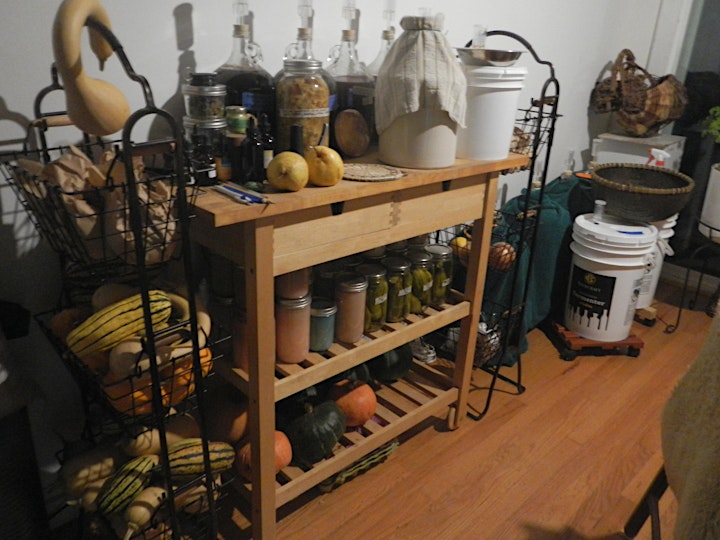
- This event has passed.
Grow Your Own Produce Workshop Series 2021
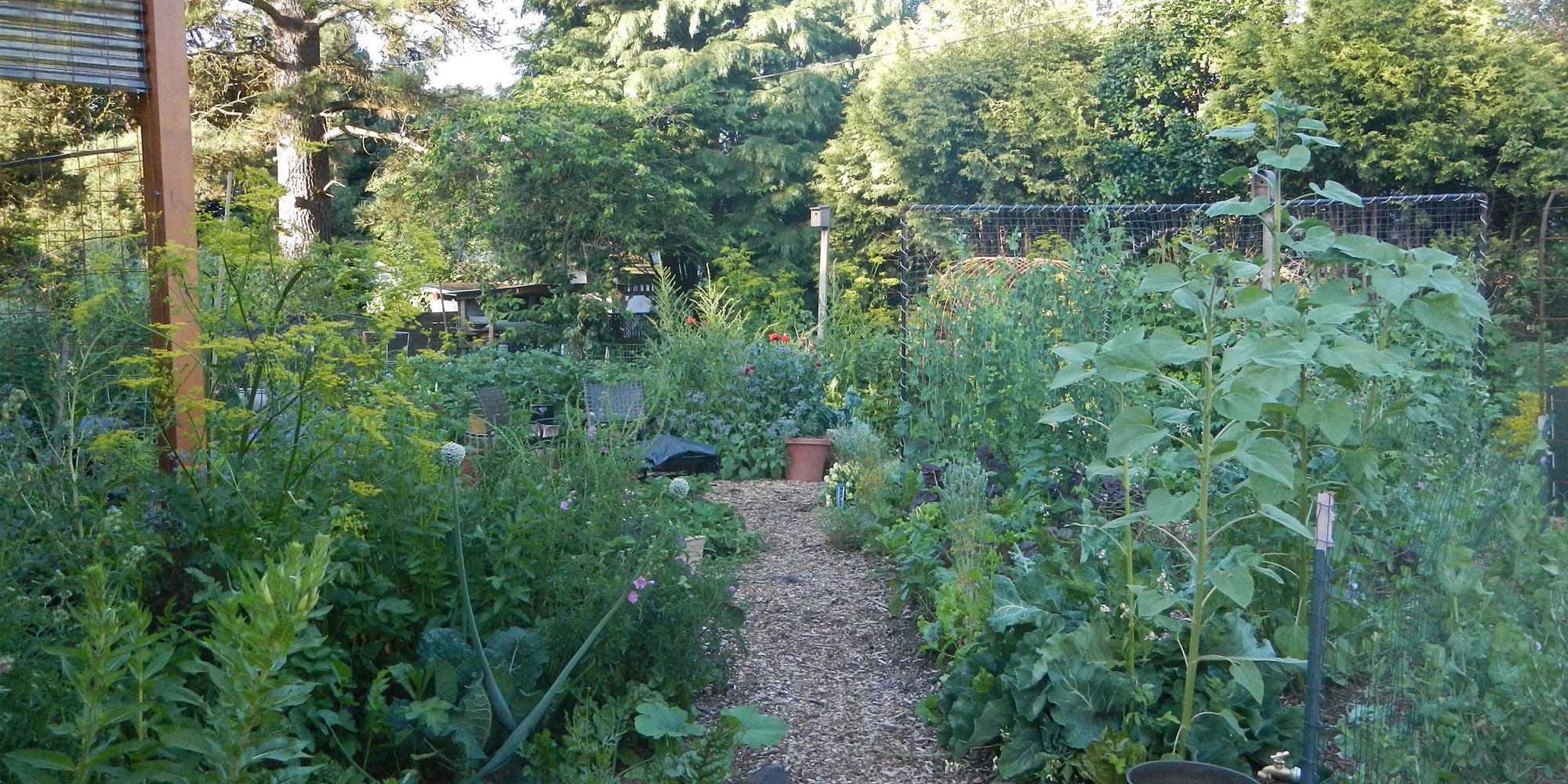
Grow Your Own Produce is a 10 class monthly series taught by permaculture expert Marisha Auerbach. Each class features seasonally-relevant information about planning, growing, maintaining, and harvesting food from your own vegetable garden.
Each month, the class is designed to help you maximize your yields and efforts in the garden by providing an overview of key activities to engage in at the right time each month from February through November. We meet on the first Wednesday of each month through Zoom. Before the class meeting, participants will receive a collection of handouts supporting the key topics for the month with a garden checklist for the month ahead. We will discuss different subjects that are pertinent to the garden that month using slides and the month’s handouts as reference. There will be ample time each class session for questions. After each class, participants receive a video of the class and pdf of the slides.
These classes are available as a ten class series ($185), a five class consecutive series ($100), or as individual events ($25 each). For more information, email Marisha Auerbach or call (503) 454-6656. 20% off discount for People’s Food Coop members — just send Marisha an email with your Member-Owner number to get the discount code.
Marisha Auerbach has spent many years observing and interacting in her garden and in the gardens of the greater Pacific Northwest bioregion. She has been growing most of her own produce year ‘round for over the past decade. Find out more about Marisha and her work at permaculturerising.com.
Class Information:
Planning, Design and Framework
Wednesday, February 3rd: 7 – 9 pm
This opening session will focus on garden planning and design. From the Macro perspective to the microclimate, we will discuss Permaculture design strategies that will help you design your landscape based on the aspect and conditions of your landscape. Thoughtful planning will help you maximize your yields and diversity of crops throughout the season. Fruit trees, berry bushes, and other large landscaping elements will be discussed as the framework for your landscape. Each participant is encouraged to have a base map of their site and some tracing paper to make notes on during the workshop. Please contact Marisha if you need support before class to have this available.
Indoor Seed-Starting, Early Plantings and Perennial Crops
Wednesday, March 3rd: 7 – 9 pm
In March, it is time to begin planting seeds both outdoors and indoors. This session will focus on those early plantings, including many root crops, and the varieties that perform best for our climate. To aid in planning the garden, we will discuss crop rotation. Our conversation begins about the importance of good compost and how to develop a composting plan that works for your household. More information on soil building will continue in April’s class. Perennial vegetables can be transplanted at this time. Since many perennial vegetables are new to gardeners, Marisha will share about growing and cooking some of her favorite types. Local seed companies and other resources will be referenced for each participant to make a personalized planting calendar.
Cole Crops, Greens and Soil Building
Wednesday, April 7th: 7 – 9 pm
April is a key time for all of the Cole Crops, such as Broccoli, Kale, Cauliflower, Collards, and Cabbage. It is also a time of planting greens. As many plants are being planted in the garden during this month and the months to come, we will highlight soil building strategies. We will continue our discussion on composting while highlighting various methods that students can use local materials to build their garden beds and enhance fertility onsite. Students will learn how to assess their soil and determine the best local materials to use to provide an optimal growing environment for their plants.
Warm-season Crops, Edible Flowers and Attracting Pollinators
Wednesday, May 5th: 7 – 9 pm
In May, the weather typically gets warmer and many flowers are blooming. We will discuss reliable varieties of warm season crops, including Tomatoes, Squash, Peppers, and Cucumbers, to grow in your garden that will produce well despite our cool summer evenings. Enhancing warm microclimates and providing protection are two strategies for increasing production of these heat loving plants. Many of these plants require insects for pollination. In this class, you will learn about pollination, pollinator insects, and flowers that attract these companions to gardens. We will also highlight edible flowers, their functions in the landscape, and recipes. This class will also cover common weeds in the garden. Students will learn how these plants reproduce and how to discourage these plants in their gardens.
Maintenance and Harvest
Wednesday, June 2nd: 7 – 9 pm
June completes our planting of the summer vegetable garden and it is time to focus on maximizing the harvest. For the urban gardener, this may mean optimizing a small space to produce as much food as possible. Yields can be compromised by pests in the garden. Marisha will share pictures to help identify pests in the garden and offer ways to discourage them. We will discuss which plants are affected by which pests. It is also a good time to consider options for conserving water as June may be a dry month. This class will also cover trellising techniques and considerations for various vegetable varieties.
Berries, Herbs and Water Catchment
Wednesday, July 7th: 7 – 9 pm
This workshop will highlight different types of fruiting crops that are available right now. We will talk about cultivating favorable growing conditions for each type of berry. Of course, we will also discuss recipes and ways to put up the harvest of berries. This class includes more information about winter gardening as this is a good month to get some cool season starts in the ground and plan for winter harvests. This session also includes a bit on water catchment. Students will learn how to determine what type of system would work best for your household. Handouts will include a to do list for the month, herbs for tea, and other pertinent information.
Seedsaving and the Winter Garden
Wednesday, August 4th 7 – 9 pm
In August, the weather has been dry and many plants are ripening their seed. This workshop will provide an overview on the basics of saving seed and guidance on how to save some of the most common garden seeds. August is the month to get many starts in the ground for harvest in the fall, winter, and early spring. We will discuss key considerations when planning for the winter garden. This class will highlight what is happening in the garden in August, how to preserve your harvest, and prepare for the coming month.
Putting Up the Harvest
Wednesday, September 1st: 7 – 9 pm
The abundance from the garden and orchard is coming in. It is time to put it up for storage and winter meals. In this class, we will discuss the options for storing food for the winter including: canning, dehydration, fermentation, & freezing. A key component of this class will be focused on how to assess what your family will eat in the winter and the space that you have available for storage. We will cover the last of the plantings for the year as the last of the winter crops should be in the garden by the Autumnal Equinox. As always, this class will highlight what is happening in the garden in September, how to preserve your harvest, and prepare for the coming month. Handouts will include a to do list for the month, information on canning and food preservation, and other pertinent information.
Garlic, Cover Crops and Compost
Wednesday, October 6th: 7 – 9 pm
October is a time for returning inward and thinking about nourishing the soil for the garden in the year to come. It is time for parts of the garden to go to bed for the winter. This class will highlight soil building methods including mulches, composting, leaf mold and more. We will discuss types of cover crops for building soil tilth and fixing nitrogen. Garlic goes in the ground this month for summer harvest. We will talk about the different types of garlic and best varieties for our region. As always, this class will highlight what is happening in the garden in October, how to tend to your garden, and prepare for the coming month. Handouts will include a to do list for the month, information on soil building methods, and other pertinent information.
Wildlife in the Garden, Nourishing Soups and Planning for the Coming Year
Wednesday, November 3rd: 7 – 9 pm
In November, the weather has become cold and the garden has been put to bed. The birds, insects, and other critters need habitat to keep them around. During this class, we will discuss ways to encourage these allies to spend the winter in your garden. By having active food webs, like these, in the garden, we invite collaboration and enhance fertility cycles on site. As this is our final class for 2021, this class will provide relevant information to help you begin planning for the 2022 garden season. We will also highlight nourishing soup recipes from local herbs, veggies, and stocks. As always, this class will highlight what is happening in the garden in November, how to tend to your garden, and prepare for the coming month. Handouts will include a to do list for the month, information on wildlife, soup recipes, and other pertinent information.
